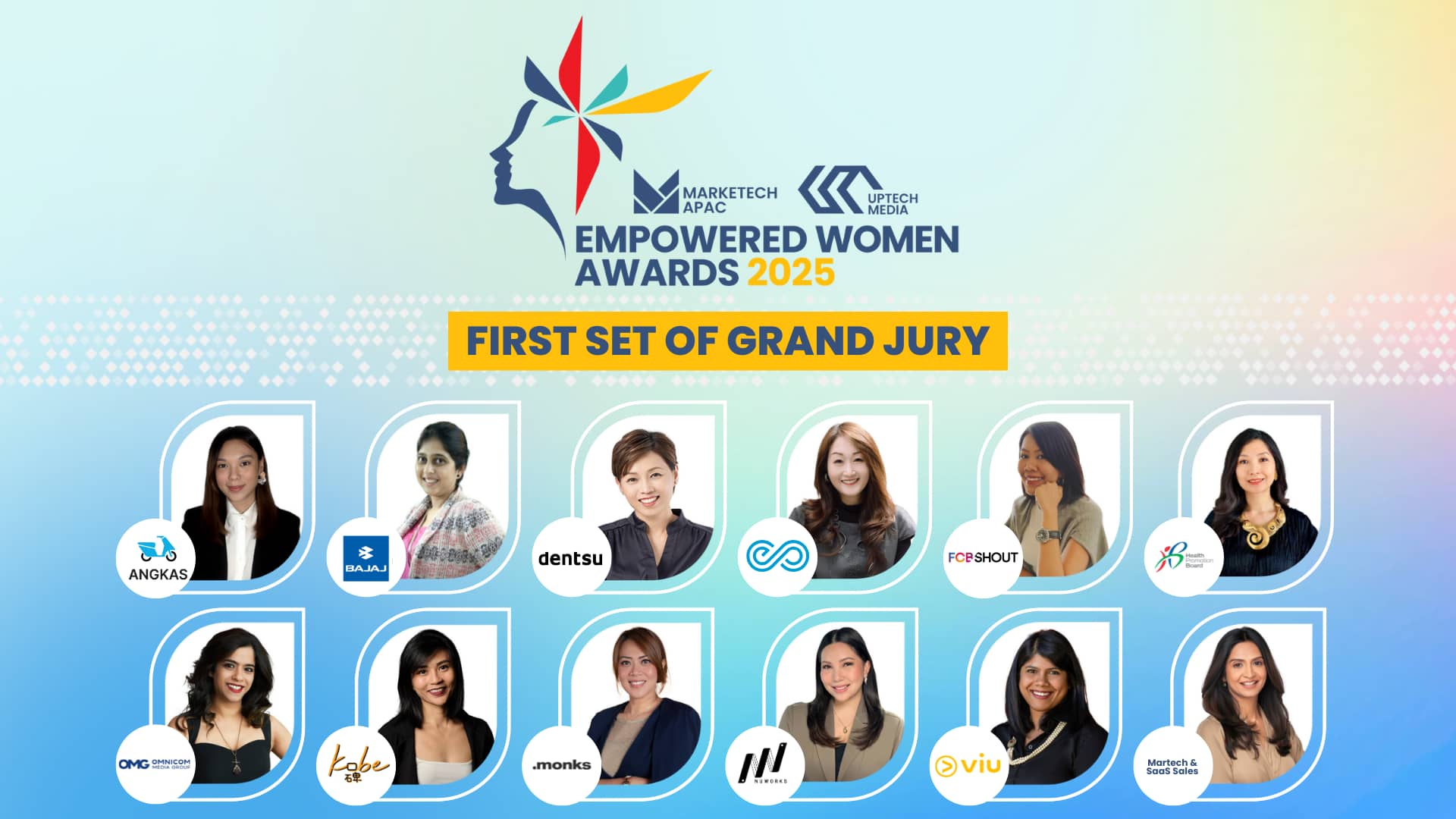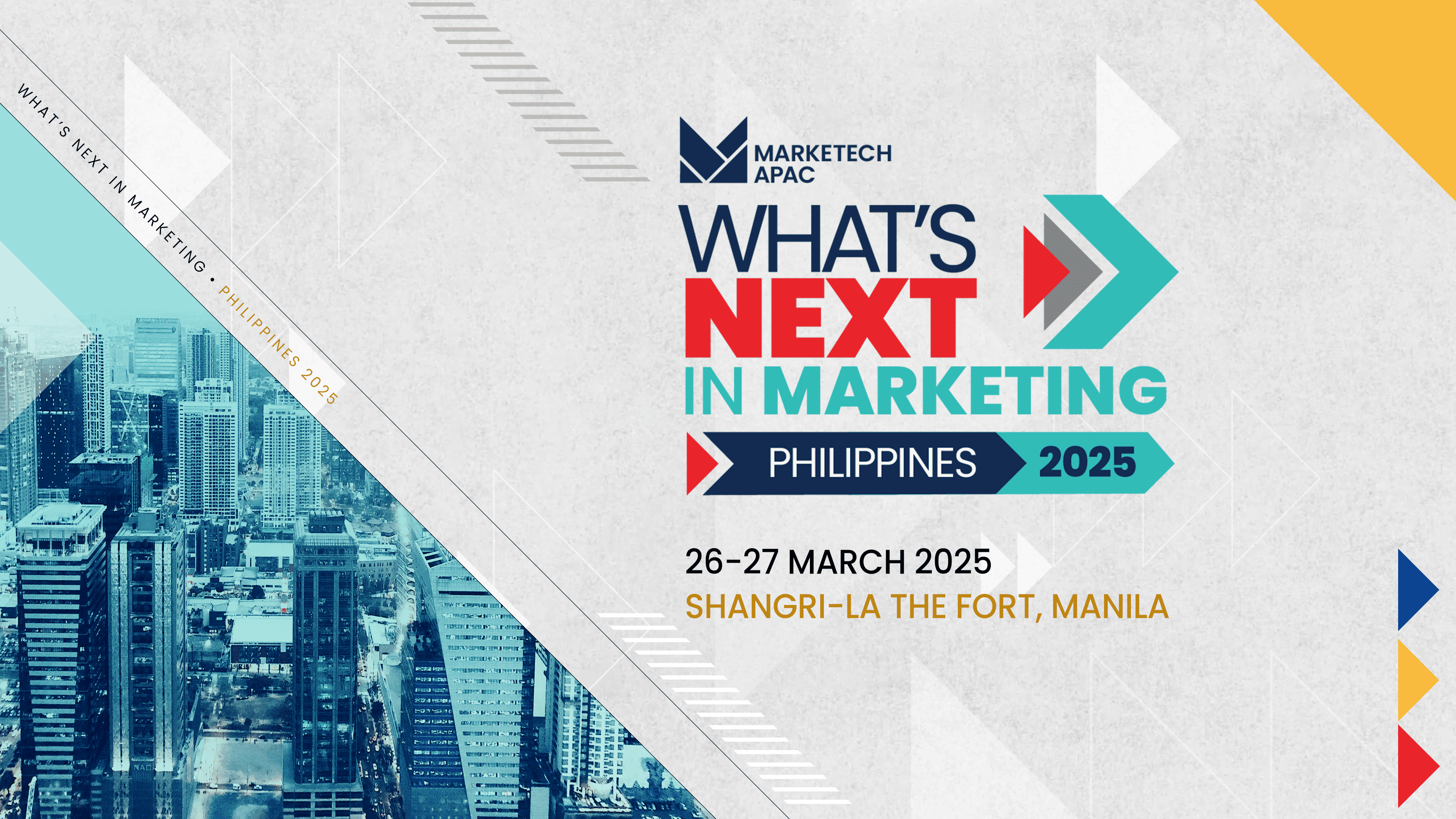MARKETECH APAC and UpTech Media’s Empowered Women Awards 2025, the latest collaborative initiative celebrating the contributions of women leaders in marketing and technology, has officially announced the first lineup of its distinguished jury panel.
Comprising a diverse group of accomplished professionals across the Asia-Pacific region, the panel brings a wealth of expertise and industry insight to assess nominations across all categories meticulously. These esteemed judges will play a pivotal role in recognising and honouring visionary women who are driving innovation and excellence in the ever-evolving marketing and technology landscape.
The first lineup of jury members includes:
- Danielle Eleazar-Ocampo, Head of Consumer & Brand Development at Angkas Philippines
- Priyanka Bisen Shah, Head of Digital Marketing at Bajaj Auto Pvt Ltd.
- Simone Tam, Group & Creative CEO, Greater Bay Area and Hong Kong at dentsu
- Linda Hassan, Chief Marketing Officer- MSK at Domino’s Pizza Malaysia and Singapore
- Reiko Kwok, Executive Vice President, Marketing Asia & General Manager Hong Kong at Exinity Group
- Syahriza Badron, Managing Director at FCB SHOUT
- Brenda Maderazo, Deputy Director, Marketing at Health Promotion Board
- Rochelle Chhaya, CEO of Hearts & Science Asia Pacific and Omnicom Media Group Thailand
- Evangeline Leong, Founder and CEO at Kobe
- Raushida Vasaiwala, Strategic Advisor | Martech & SaaS Sales
- Munas van Boonstra, Managing Director, Southeast Asia at Monks
- Patricia Saez, Managing Director at NuWorks Interactive Labs, Inc.
- Lavina Tauro, Vice President, Marketing & Country Manager, Myanmar at Viu
Set to conclude with an esteemed in-person awards ceremony on June 26, 2025, in Manila, this event will serve as a tribute to innovation, leadership, and the fearless women who are breaking new ground in their industries.
The Empowered Women Awards 2025 will feature 46 distinct categories, spanning individual achievements, marketing excellence, technological advancements, special honours, and the prestigious grand prix. Each category will recognise three outstanding winners, who will receive Bronze, Silver, and Gold accolades.
The judging criteria for the awards are as follows:
- People Categories
- Business Contributions (30%)
- Leadership (30%)
- Industry Influence (40%)
- Women Empowerment (Bonus Point – 5%)
- Marketing Campaign Categories
- Problem (20%)
- Strategy (25%)
- Execution (25%)
- Results (30%)
- Tech Innovation Categories
- Objective (30%)
- Tech Implementation (30%)
- Business Impact (40%)
- Special Awards
- Best Women-Centric Campaign
- Societal Impact (20%)
- Industry Influence (20%)
- Strategic Impact (30%)
- Business Growth and Effectiveness (30%)
- Best Women Leader of the Year
- Business Accomplishments (20%)
- Leadership (20%)
- Industry and Community Contributions (30%)
- Women Empowerment (30%)
- Best Women-Centric Campaign
Key dates related to the awards ceremony this 2025 are as follows:
- Early Bird Deadline – 4 June 2025
- Entries Deadline – 4 July 2025
- Judging Period – 14-25 July 2025
- Finalists Announcement – 5 August 2025
- Awards Night – 26 September 2025
To find out how to participate in this prestigious award series, click HERE to learn more about the Empowered Women Awards 2025.
For sponsorship opportunities, please contact Joven Barceñas ([email protected]); for judging opportunities, please contact Ivy Alamo ([email protected]); and for nominations, please contact Denise Obispado ([email protected]).










